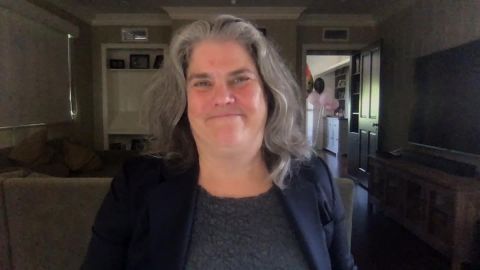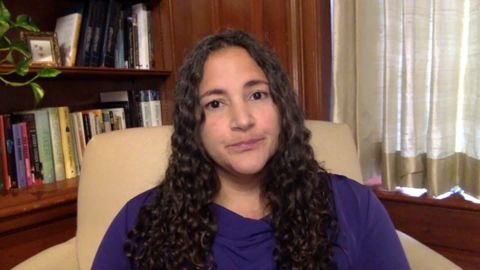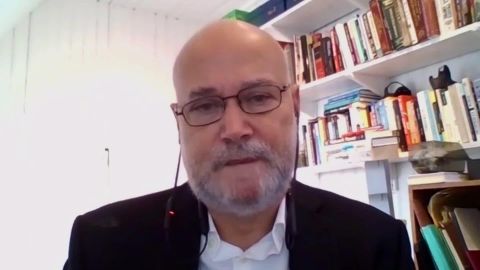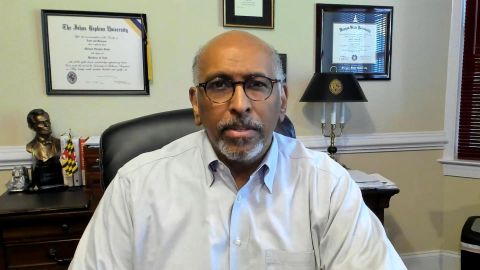Read Transcript EXPAND
CHRISTIANE AMANPOUR: And you won for discovering a supermassive black hole. Can you just briefly, for the layperson, explain what — why you won and what for?
ANDREA GHEZ, NOBEL PRIZE WINNER: Well, I — thanks so much. It’s a pleasure to be here. And this work is being recognized for the discovery of a supermassive black hole. So, black holes are regions of space where the pull of gravity is so intense that nothing can escape it, not even light. But they are also objects that push the frontier of our knowledge of physics. So, they represent the breakdown of our knowledge of the physical world. We don’t know how to actually describe the physics of black holes. So, it’s very important to prove that these things actually exist. What we have demonstrated is that there are black holes that are a million times the mass of the sun, really, in the universe. And we have done this by looking at the center of the galaxy. These things seem — we think, reside at the center of galaxies, and our galaxy is the closest example of a galactic center that we will ever have to work with. So, we have been able to create a laboratory right in our backyard.
AMANPOUR: Well, look, it’s obviously something that inspires you, and it’s your passion. But what did inspire you as a very young girl to want to take up physics? It’s not — I mean, as we said, you’re the fourth woman ever to win for physics in 119 years of the Nobel. What drew you, as a girl, to physics and science?
GHEZ: Well, hindsight is 20/20. So my path wasn’t a linear one to where I am today. I had a lot of passions, including, when I was young, wanting to be a ballerina.
(LAUGHTER)
GHEZ: But, at the same time, I also saw the early moon landings. And I think that was the first time I was really captivated by the magic of thinking about the universe, the enormity. And I think I find it really humbling to realize that there’s this universe that is so much bigger, and has lasted for so much longer than we have ever been here as human beings.
AMANPOUR: And, apparently, your parents bought you a telescope after the moon landings that you were hooked on. And that really changed the landscape for you. And there are balloons in the background there. You obviously have been getting a lot of congratulations. Just how did you get the news? I mean, you’re way away from Europe, where they would have, I guess, called the winners. What time was it?
GHEZ: It was 2:00 a.m. when the house phone call — phone rang. And the house usually — phone doesn’t usually ring in the middle of the night. So I was fast asleep. And at first, you think you’re dreaming. And then you realize, this is not a dream. You’re really being informed that you just won the Nobel Prize. And it is — it is breathtaking.
About This Episode EXPAND
Michael Steele; Laurie Santos; Yochai Benkler; Andrea Ghez
LEARN MORE



